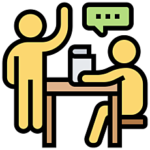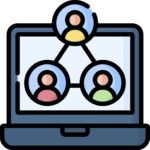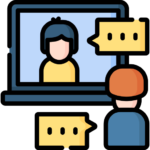Introduction to ELA Adult Learning:
ELA delivers high quality apprenticeships and short courses. We have expertise across a range of education and care settings, such as early years, private and public schools, special needs provisions and residential care settings.
We aspire to support committed and passionate care workers, teachers, support staff, school leadership and administration to achieve their goals. Our team has a huge passion for learning that makes a difference, and not just providing training for training’s sake.
Level 5 Children, Young People
and Families Manager
• A Leader in Residential Childcare will guide and inspire teams to make positive differences to a child’s life when they are faced with physical, practical, social, emotional, or intellectual challenges.
• They will develop and implement a values-based culture at a service or unit level.
• They may be responsible for business development, financial control,
organisational resilience and continuity, as well as for managing risk and leading on organisational change.
• They may be a registered manager of a residential care setting, or a
deputy manager
Relevant settings include:
• Residential Care Homes
• Residential Special Schools
• Therapeutic Communities
• Secure Children’s Homes
• Shared Care
• Short Break Settings







